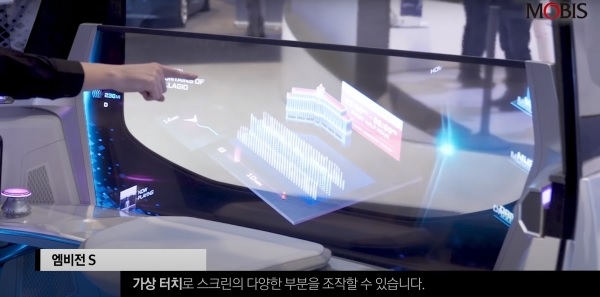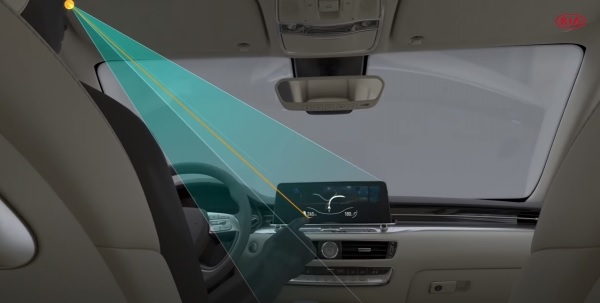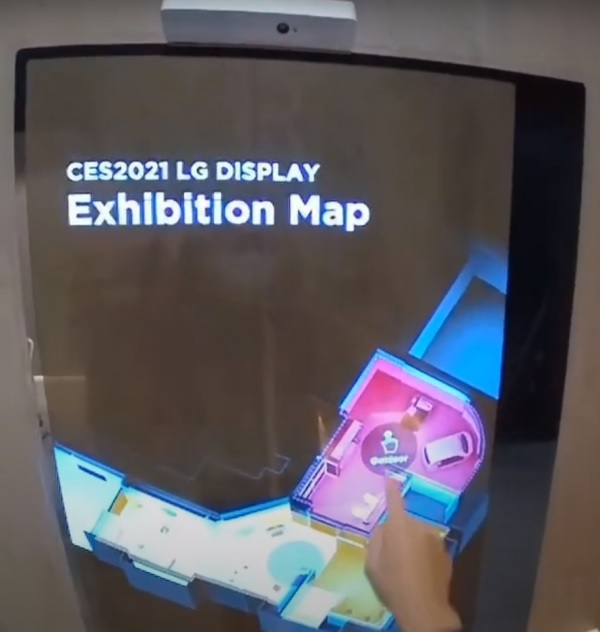
South Korean start-up Vtouch is aiming to commercialize digital signage this year, company co-CEO Kim Seok-joong says.
Vtouch is a developer of virtual touch technology. The technology uses the camera on displays to recognize the eyes and hand tips of users. The used the idea that the hand pointing at an object and the direction of the eyes when doing so is arranged into a straight line.
The camera uses 3D Time of Flight camera module. The camera will identify what object the user is pointing towards by finding the 3D location of their eyes and hands. “Vtouch is the only company in the world with non-contact remote touch technology,” the co-CEO says.
Vtouch has secured 132 related patents so far __ 94 has been applied and 38 has been registered.
The company, since 2019, has collaborated, in order, with Kia Motors, Hyundai Mobis and LG Display. Their co-projects have been displayed at CES. Kia and Hyundai unveiled their automobile displays at CES 2019 and CES 2020 that uses Vtouch’s technology. LG Display showed off a transparent organic light emitting diode (OLED) with Vtouch’s virtual touch at CES 2021.

Kim says as more spatial computing environments are deployed in the market, there will be a need for a new convenient input technology like the mouse for PCs.
Artificial intelligence (AI)-based voice assistants will be equivalent to keyboards in this environment while virtual touch will be like the mouse, the co-CEO says.
Virtual touch will also allow children or those on wheelchairs to easily control digital signage such as kiosk.
Vtouch won the machine learning challenge hosted by Google Korea in 2017.
The company first launched its gesture control technology in 2012 aimed at home and IT products. But gesture control was not popular then. Previous gesture control methods were applied to smart TVs and inside of cars but frequently malfunctioned, leaving consumers to ignore using them, Kim says.
Vtouch changed direction afterwards and focused research and development on digital signage and automobiles.
The company has so far secured 1.5 billion won in investments. In 2019, the firm posted 700 million won in sales from research projects. It has 11 employees.


